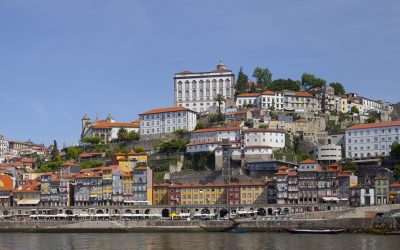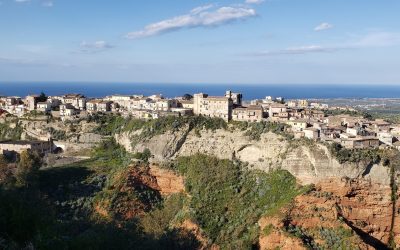Erasmus+
The Erasmus program aims to address the teaching and learning needs of all participants in formal higher education and vocational education level, whatever the length of their course or qualification, including doctoral studies, as well as institutions providing such training.
Incoming
ERASMUS POLICY STATEMENT (EPS)
1. Participation in Erasmus+
The project that the School of Art of Cádiz wants to develop is based on four main actions, all belonging to the Key Action KA-01:
1st action
Student mobility for studies among countries in the programme.
This first action is aimed at students of the Fashion and Design Degree (1st cycle), who will be able to study the ETCS corresponding to a semester in an institution hosted by the programme.
2nd action
Student mobility for traineeships among countries in the programme.
This second action is aimed at students of higher degree training cycles (Short cycle) who have completed their studies at the educational centre, and students of the Fashion and Design Degree ((EESSDD) (1st cycle). In this action, they would carry out the training in work centres in institutions hosted by the programme, for a period of 2 months.
3rd action
Staff mobility for training among programme countries.
The third action is aimed at the teaching staff of our centre, with the aim of exchanging experiences in terms of organization, structure, curriculum, contents and competencies of both our respective centres and teaching practices.
4th action
Staff mobility for teaching among programme countries.
Finally, the fourth action is aimed at facilitating the stay of our teaching staff in other institutions in countries of the programme, in order to offer our pedagogical skills in the field of art and design, contributing from our experience to other centres of higher studies.
The School of Art of Cádiz has established, for the studies covered by the international mobility programme, a credits system corresponding to the framework of the Bologna Plan. Below we explain how this credit system is established for each of the actions.
en blanco
1st action. Higher Artistic Education in Fashion Design:
- 60 credits will be earned as a workload for a full academic year.
- 30 credits will be earned as a semester workload.
- 20 credits will be earned as a quarter workload.
The workloads to obtain these credits will be from class attendance, seminars, project completion, exams, and research work.
As regards the methodology for the allocation of appropriations, the following shall be taken into account:
- The semester where the completion of the study abroad period is best suited to the curriculum.
- Guarantee the full recognition of the programmes taken abroad established in the Learning
Agreement through the Recognition Sheet.
The period of stay in other institutions of the European Union under the Erasmus Charter will be 6 months.
2nd action. Certificate of Higher Education in
- Projects and Management of Decoration Works. • Furniture.
- Graphic Advertising.
- Engraving and Printing Techniques.
- Fashion Design.
- Artistic Ceramics.
- Illustration.
The curriculum of the Higher Education comprises 2 academic years, with a total of 1850 to 1950 hours and includes 100 hours of training in work centres, as well as the elaboration of an integrated project with a total of 100 hours.
The period of stay in other institutions of the European Union Hosted by the Erasmus Charter will be 2 months for the completion of the training period in workplaces.
3rd and 4th action. Mobility of teachers
Duration of 5 days, excluding travel days.
In mobility for training, the activity must correspond to a training course, workshop, seminar, conferences, etc. In mobility for teaching, the teaching staff will design the interventions to be carried out during the stay, in correspondence to the educational programme of the host institution.
The School of Art will establish the selection procedures for both students and applicant staff, through a fair, transparent, coherent and documented process that must be available to all parties to the process.
2. Strategy, objectives and impact
Strategy for the modernization of the School of Art of Cádiz, objectives that are intended to be achieved, and expected impact of the participation of the School of Art of Cádiz in the ERASMUS+ Programme.
en blanco
1. TO INCREASE THE RESEARCH ATTITUDE TOGETHER WITH POSTGRADUATE STUDIES.
Participation in mobility programmes is an enrichment of the centre and its studies, both by the professors and students who participate in these programmes abroad and by those who are received by the centre.
On the one hand, this enrichment will provide a greater attractiveness of higher education for students, thus increasing the number of people interested in pursuing these studies.
On the other hand, the focus abroad favours the research attitude, which will be reflected in the number of students who after finishing their higher studies will dedicate themselves to the realization of Specialization Masters and Research projects.
2. TO IMPROVE THE QUALITY OF HIGHER EDUCATION.
Through the mobility programmes, the studies will be reinforced in their continuous updating by the feed-back of the participants in them, which will favour the adaptation of higher studies to the changing needs of the economy, resulting in graduates with a high quality in their training that will meet the real needs of companies favouring labour insertion. In addition, the realization of institutional agreements with other entities of the private sector such as companies, will favour in turn that higher studies are open to the current business reality, counting on the information obtained through these relationships.
3. TO STRENGTHEN THE QUALITY OF TEACHING THROUGH INTERCULTURAL EXCHANGES.
Mobility helps people to increase their professional, social and intercultural skills, as well as their employability; therefore, from our internationalization strategy, we intend to minimize all obstacles to the recognition of credits and activities carried out under these mobility programmes, not only within the European Union but also outside it, to attract the best students, teachers and researchers to the European Union.
4. TO GENERATE THE TRIANGLE OF UNION AMONG EDUCATION, RESEARCH AND BUSINESS.
The establishment of mobility programmes among educational institutions as well as with other professional institutions, research centres, business centres, companies and high-tech centres, will enhance an effective contribution to the «Knowledgement triangle» to effectively unite the three components of it, education, research and business and improve the degree to which the results of research are effectively incorporated into the market.
The School of Art, as an institution dedicated to the professional teaching of different fields of design, through innovation, creativity and research, contributes to the optimization of this objective.
5. TO ESTABLISH COLLABORATION AGREEMENTS WITH PRIVATE INSTITUTIONS.
The establishment of collaboration agreements with other institutions will favour the obtaining of different financial grants to improve the quality of education and research. The centre aims to minimize the barriers to obtaining these agreements, which favour the quality and relationship of all agents involved in higher education and business development.
6. TO PARTICIPATE IN THE DEVELOPMENT OF EUROPEAN QUALITY PROJECTS.
In accordance with the strategic lines set by the European Union for the internationalization of education, the School aims to create synergies with other higher education institutions to develop projects with high quality standards linked to the following principles:
- Non-discrimination, equality and respect for diversity.
- Environmental sustainability, eco-design and identity of the territories.
- Economy, digitalization and fluidity in all the administrative tasks planned.
- European citizenship, democracy and coexistence.
3. Indicators
We establish three types of indicators that will provide us with all those data, both quantitative and qualitative, for the evaluation of our Programme. They are as follows:
3.1. Process indicators.
Process evaluation allows us to ensure that the programme works as we want and at the level we had planned, before attributing effects or consequences to a programme. Its basic objectives are:
- To find out and describe how the programme works.
- To analyze the differences between actual and planned execution.
This evaluation allows the programme to be improved during the process, and to determine to what extent the objectives are being achieved. It will try to analyse the progress of the programme, and it is a measure that is carried out during the application of the same or just after finishing it, trying to determine how it is being carried out.
3.2. Result indicators.
It allows us to know the effects of the programme in the short term.
3.3. Impact indicators.
They are applied after a while; they serve to measure the long-term effects that the programme causes on the non-target population and on the context of the programme.
ERASMUS POLICY STATEMENT (EPS)
STUDENTS MOBILITY
- 25 hours are equivalent to 1 ECTS.
- The grading scale ranges from 0 to 10, with a minimum passing grade of 5.
To apply, please submit a completed application form along with a portfolio at erasmus@eacadiz.com.
En blanco
Your content goes here. Edit or remove this text inline or in the module Content settings. You can also style every aspect of this content in the module Design settings and even apply custom CSS to this text in the module Advanced settings.
Before mobility
- Nomination by the home university.
- Application form.
- Letter of acceptance.
- Student’s portfolio.
- B1 level in Spanish.
- Study Programme and curriculum
- Student Visa (if necessary): Link
During mobility
- Welcome day
- Curriculum support and advice in our Art School.
- Modification of academic contract (if necessary)
After mobility
- Certificate of Attendance
- Recognition of studies (ECTS credits)
- Certificate of qualifications.
First of all, your university has to send us your nomination, with the necessary information about you and your e-mail address, as this will be the way we will communicate with you. If you do not receive any information from us, please contact your university to verify whether or not they have sent us your nomination.
Looking for accommodation? Buddy Programme
The Erasmus Coordination of the School of Art of Cadiz advises you free of charge.
The Erasmus Coordination offers free assistance to foreign exchange students (Erasmus+ and from other non-European countries) during their first weeks of stay in Cádiz through the so-called Buddy Programme. It also provides a list with several accommodation options: hotels, residences, apartments, etc.
Academic calendar
Dates are approximate. May change depending on the academic year
| Start of lessons 1st trimester (High Studies 2 years) | 15 September |
| Start of lessons 1st semester (Fashion Design Degree) | 20 September |
| End of 1st trimester (High Studies 2 years) | 21 December |
| End of 1st semester (Fashion Design Degree) | 3 February |
| Christmas holidays: 22 December | 6 January |
| Start of lessons 2nd trimester (High Studies 2 years) | 8 January |
| Start of lessons 2nd semester (Fashion Design Degree) | 5 February |
| End of 2nd trimester (High Studies 2 years) | 22 March |
| End of 2nd semester (Fashion Design Degree) | 24 June |
| Easter Holidays | 25 - 31 March |
| Start of lessons 3th trimester (High Studies 2 years) | 1 April |
| End of 3th trimester (High Studies 2 years) | 21 June |
Important
All classes will be given in Spanish.
Students in higher education (2 years) will carry out their Final Projects and Internship in companies in the last term of the second year. There will be no normal teaching in the last term.
Students of the Degree in Fashion Design (4 years) will carry out their Final Projects and Internship in companies in the last semester of the fourth year. There will be no normal teaching in the last term.
Studies program
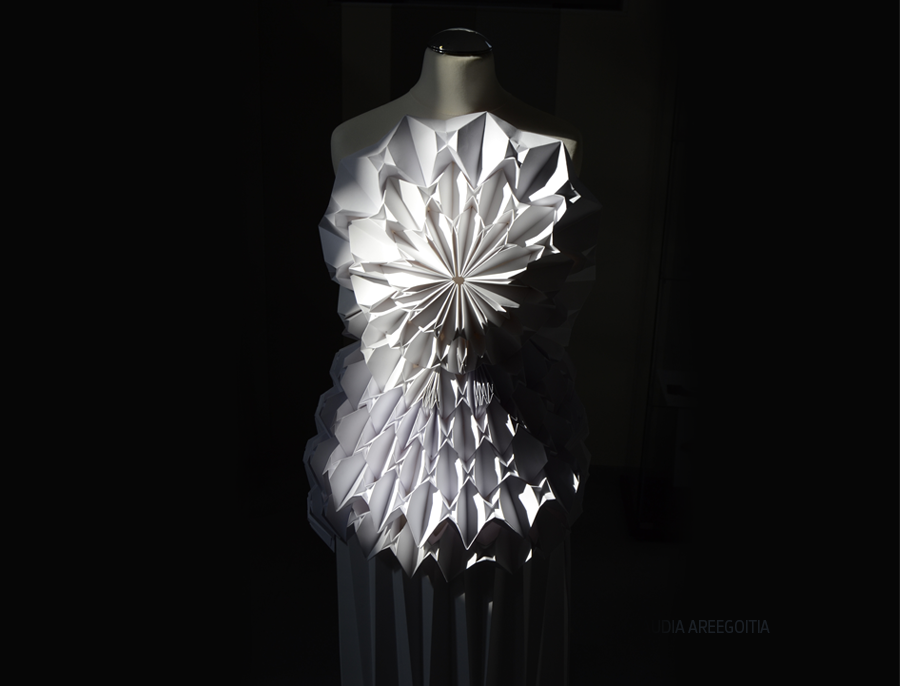
Fashion Design
Higher Education. Art Degrees in Design
240 ECTS (60 ECTS per year)
The fashion industry is an economic and cultural reference both worldwide and national. This competitive and international environment requires a higher qualification. In order to achieve that goal, this 4-year-course offers a complete development on theoretical, technological, business and creative knowledge, focusing on the different fields in fashion.
This program is equivalent to the European Graduate Qualification, and will allow you to progress to post-graduate, master’s and PHD courses.
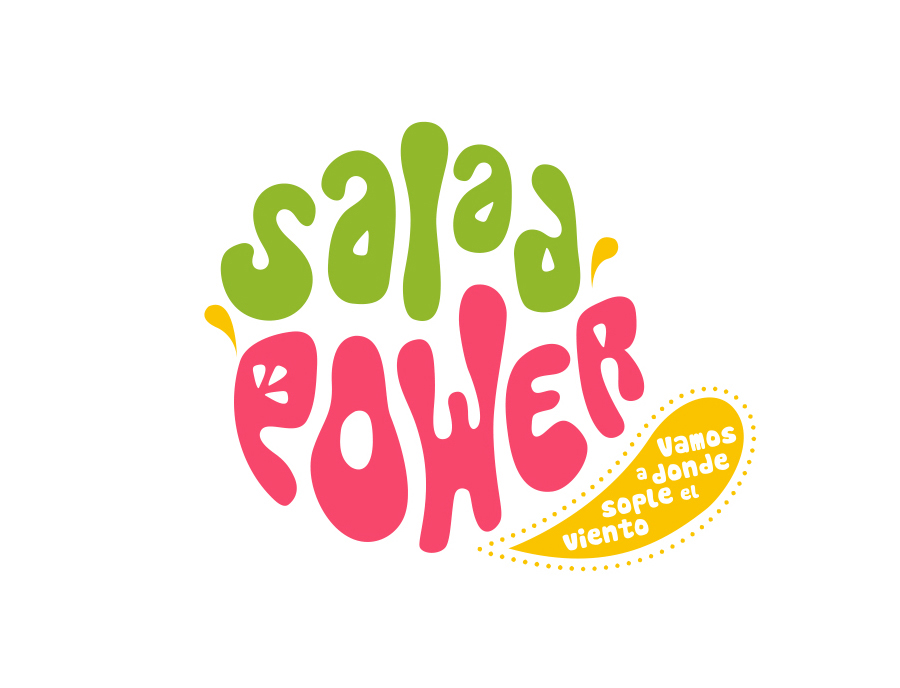
Advertising Graphics
High Studies
Gráfica Advertising is aimed at training professionals who specialize in graphic design of advertising messages, a profession with great future prospects.
The cycle taught in our center is of a higher level and the only one approved by the educational administration and free of charge.
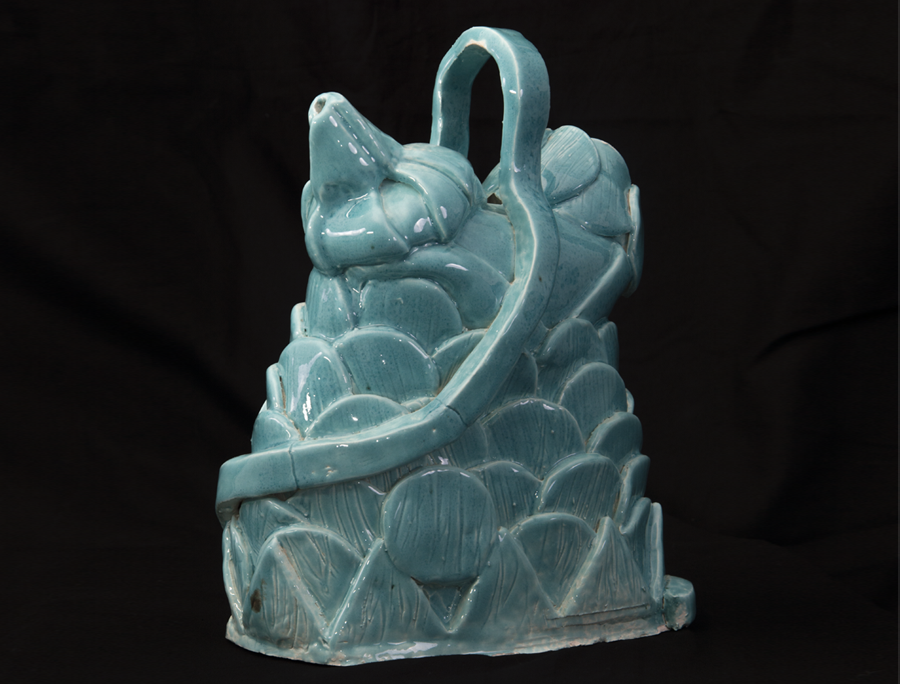
Artistic Ceramics
High Studies
Taught in the afternoon, it trains professionals with extensive training. Covering a varied range of structural and ornamental procedures and resources at the service of the conception, realization and final finishing of the object.
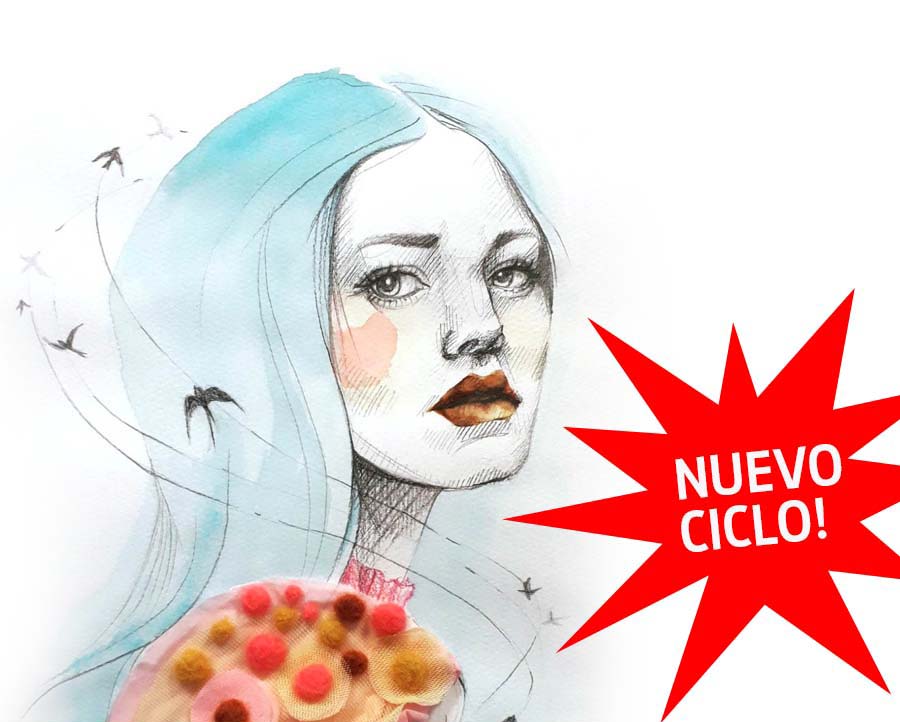
Ilustration
High Studies
The Higher Level Illustration Training Cycle, taught in the afternoon, prepares professionals capable of creating quality illustrations from their own project or on request. Planning its realization, defining the appropriate expressive, formal, functional, aesthetic and technical resources.
Erasmus+ experiences
ERASMUS EN PORTUGAL
Cuando decidí pedir la beca Erasmus, me parecía tan lejano el momento de salir y comenzar la aventura… no sabía qué me esperaba tras tanto papeleo. Lo que he descubierto ha sido una serie de experiencias que me están enriqueciendo como persona. Es un cambio de vida,...
ERASMUS EN ROSSANO
Salgo a mi Erasmus desde Cádiz con toda mi ilusión y con la incertidumbre sobre lo que va a suceder en estos dos meses, y es que esto es lo bonito de esta experiencia, ir venciendo cada uno de los obstáculos e incertidumbres que te ofrece esta pequeña nueva vida. Mi...

